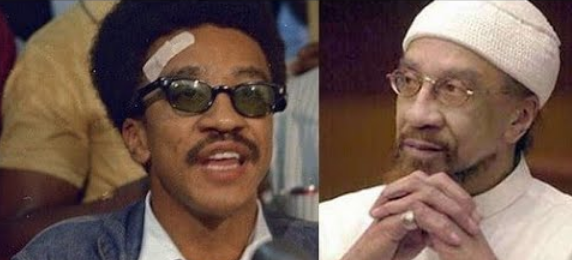Photos: YouTube\Screenshot
Following a two-week trial, three Georgia men were convicted Tuesday by a federal jury in the Southern District of Georgia for committing hate crimes and attempting to kidnap Ahmaud Arbery, a young Black man who was jogging on the public streets of a Brunswick neighborhood. Two of the men were also convicted of charges that they used firearms during that crime of violence.
Travis McMichael, 35; Travis’s father, Gregory McMichael, 65; and William “Roddie” Bryan, 51, were each convicted of one count of using force and threats of force to intimidate and interfere with Mr. Arbery’s right to use a public street because of his race.
In addition to the hate crime charges, the defendants were found guilty of attempted kidnapping. Finally, Travis McMichael was found guilty of using, carrying, brandishing, and discharging a Remington shotgun in the course of the hate crime, and Gregory McMichael was found guilty of using, carrying, and brandishing a .357 Magnum revolver.
“Today’s verdict makes clear that the Justice Department will continue to use every resource at its disposal to confront unlawful acts of hate, and to hold accountable those who perpetrate them,” said Attorney General Merrick B. Garland. “Although we welcome the jury’s verdict, the only acceptable outcome in this matter would have been Mr. Arbery returning safely to his loved ones two years ago. No one in this country should have to fear the threat of hate fueled violence. No one should fear being attacked or threatened because of what they look like, where they are from, whom they love, or how they worship. And no one should fear that if they go out for a run, they will be targeted and killed because of the color of their skin.”
Evidence at trial revealed that on Feb. 23, 2020, defendants Travis and Gregory McMichael armed themselves with a Remington shotgun and a .357 Magnum revolver, respectively, and chased Mr. Arbery. The pursuit passed by the home of defendant William “Roddie” Bryan, who did not know Mr. Arbery, but decided to get into his own truck to join the McMichaels in their pursuit of Mr. Arbery.
For four to five minutes, the three defendants pursued Mr. Arbery through the neighborhood and tried to box in Mr. Arbery with their trucks. During the chase, Mr. Arbery was running with his hands empty and in plain view. He never spoke a word to the defendants, and never made any threatening sound or gesture; rather, he repeatedly tried to run away from the defendants.
Ultimately, after Mr. Arbery had already changed direction multiple times, trying to escape from the defendants, Travis McMichael got out of his truck and pointed a shotgun directly at Mr. Arbery. When Mr. Arbery tried to defend himself, Travis McMichael shot him in the chest. Mr. Arbery, wounded, grabbed for the gun. During a struggle over the gun, Travis McMichael fired two more shots into Mr. Arbery, who then stumbled a few steps and fell face-first onto the pavement, where he died in the street.
Evidence at trial revealed that the defendants had strongly held racist beliefs that led them to make assumptions and decisions about Mr. Arbery that they would not have made if Mr. Arbery had been white.
Travis McMichael’s social media comments and text messages to friends showed that he had for many years associated Black people with criminality and had expressed a desire to see Black people — particularly those he viewed as criminals — harmed or killed, and that he had expressed support for vigilante efforts to catch or harm criminals.
Witnesses testified about deeply racist comments Gregory McMichael made to people he barely knew. One witness testified that during a brief encounter in a professional capacity, she commented, in passing, that it was “too bad” that Julian Bond, a Black Georgia civil rights leader, had recently passed away; Gregory angrily responded with a five-minute rant about Black people and said that he wished Mr. Bond had “been put in the ground years ago. He was nothing but trouble. Those Blacks are nothing but trouble.”
William Bryan’s text messages revealed that when defendant Bryan learned, just four days before the shooting, that his daughter was dating a Black man, he referred to the boyfriend as a “ni—” and as a “monkey.” There were other messages on social media in which Bryan referred to other Black people using those slurs and another racial slur: “bootlip.”
When the police spoke to Bryan about Mr. Arbery’s death, he admitted that he had never seen or heard anything about Mr. Arbery before; he just saw a Black guy being chased and figured he must have done something wrong, and that his “instinct” told him that Mr. Arbery must be a thief or that maybe had shot someone.
The evidence at trial proved that race formed a but-for cause of the defendants’ actions on Feb. 23, 2020, meaning that, without that factor, the defendants would not have chased down a Black man whom they assumed, without evidence, was a criminal.
All three defendants face sentences of up to life in prison.
All three defendants were previously convicted in a separate state trial with felony murder and multiple other felonies for their roles in Mr. Arbery’s killing. The McMichaels were each sentenced to life imprisonment without the possibility of parole; Bryan was sentenced to life imprisonment with the possibility of parole.







